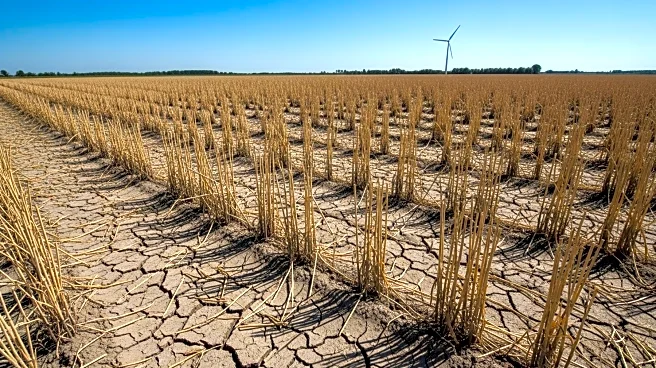What is the story about?
What's Happening?
European farmers are experiencing significant crop losses due to worsening drought conditions across the continent. The drought has led to reduced yields and financial strain for farmers, with some reporting losses of up to 75% compared to previous years. The study highlights the vulnerability of the food system to climate change, with annual drought losses projected to rise significantly if global temperatures continue to increase. Farmers are struggling to adapt to the changing climate, with sandy soils unable to retain water and crops failing to thrive.
Why It's Important?
The intensifying droughts pose a major threat to the agricultural industry, impacting food security and economic stability. As climate change continues to exacerbate weather extremes, farmers face increased challenges in maintaining productivity and profitability. The situation underscores the need for sustainable farming practices and climate adaptation strategies to mitigate the impacts of drought and ensure the resilience of the food system. The economic fallout from droughts also affects related industries, such as shipping and energy, highlighting the interconnected nature of climate impacts.
What's Next?
Farmers and policymakers are urged to invest in climate-smart agriculture and infrastructure to enhance resilience against droughts. Strategies such as crop diversification, improved irrigation systems, and soil management are essential to adapt to changing conditions. The agricultural sector must also explore innovative solutions to reduce water usage and improve soil health, ensuring long-term sustainability.
Beyond the Headlines
The droughts raise ethical questions about the responsibility of industrialized nations to address climate change and support affected regions. The situation also highlights the need for international cooperation in climate research and policy development, as the impacts of drought extend beyond national borders.















